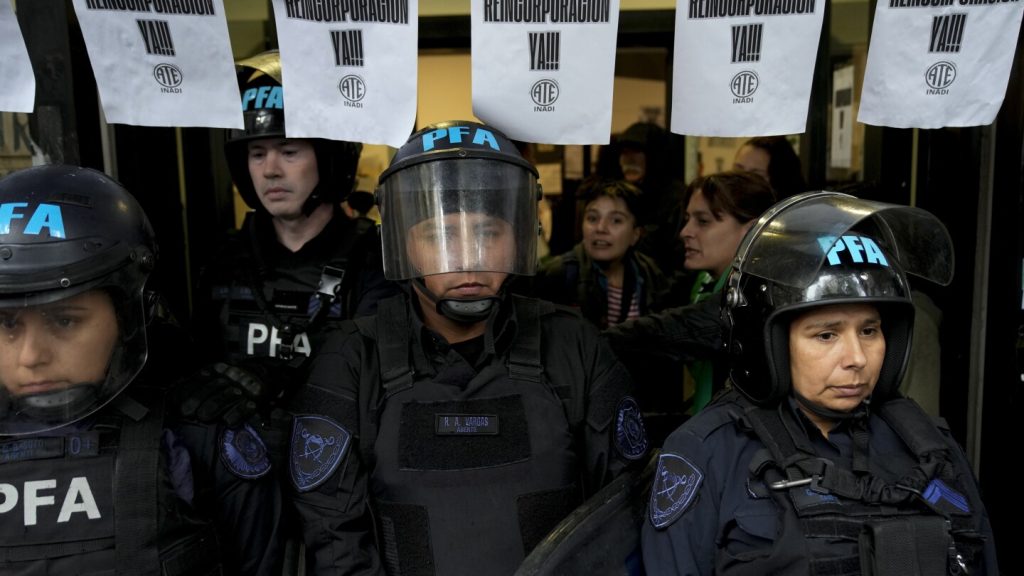Luana Salva, a transgender woman in Argentina, experienced a sudden reversal of fortunes when she was hired for her first formal job after years of prostitution. However, her joy was short-lived as she was abruptly fired in a wave of government layoffs initiated by right-wing President Javier Milei to solve Argentina’s economic crisis. Milei’s policies, which aim to dismantle diversity and equity programs, have sparked outrage among LGBTQ+ activists, who fear the rollback of their hard-won gains in gender and sexual rights.
Milei, a self-proclaimed “anarcho-capitalist,” has criticized social justice movements and rolled back several progressive policies enacted by previous left-leaning administrations. His government has closed down ministries focusing on women, gender, and diversity, banned gender-inclusive language, and ended gender-focused training programs. Milei’s actions have been met with protests from activists who see his administration as moving Argentina backwards in terms of LGBTQ+ rights and gender equality.
Under Milei’s presidency, Argentina has witnessed a shift in cultural norms, with the president making controversial decisions like renaming the Women’s Hall in the presidential palace to the Hall of Heroes and removing portraits of historical female leaders. Milei has also shown opposition to abortion rights, going as far as presenting legislation to repeal Argentina’s legalization of abortion. The LGBTQ+ community, which saw significant progress in recent years with the recognition of same-sex marriage and gender identity rights, now faces uncertainty about the future of their rights.
Despite Milei’s claims that the government layoffs are part of austerity measures and not specifically targeting LGBTQ+ individuals, activists argue that the impact on gender and sexual minorities is disproportionate. The layoffs have affected transgender individuals who benefited from employment quota laws designed to increase their representation in the workforce. Activists point out that the layoffs can have negative ripple effects, leaving vulnerable communities at a higher risk of discrimination and hate crimes.
In response to the government’s actions, LGBTQ+ activists in Argentina have taken to the streets to protest against the layoffs and other policies of President Milei. The community, already facing challenges in accessing healthcare and employment, has mobilized to defend their rights and raise awareness about the impact of the government’s decisions. The ongoing protests reflect a broader resistance to the administration’s populist shock doctrine and its perceived disregard for minority rights in Argentina.
As the country navigates through a period of political and economic upheaval, marginalized communities like the LGBTQ+ population continue to fight for their rights and visibility. The intersection of economic pressures, social conservatism, and anti-LGBTQ rhetoric has created a challenging environment for gender and sexual minorities in Argentina. Despite the setbacks, activists and individuals like Luana Salva remain resilient in their advocacy for inclusion, equality, and dignity for all.


